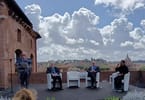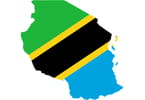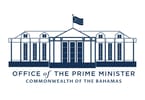The International Indigenous Forum, in an unprecedented collective move, decided yesterday to withdraw from the discussions of the WIPO Committee on Genetic Resources taking place from February 14-22. The move calls into question the legitimacy of the negotiations.
As delegates were working on a compilation text at the twentieth session of the Intergovernmental Committee on Intellectual Property and Genetic Resources, Traditional Knowledge and Folklore (IGC), an Indigenous Peoples representative, speaking on behalf of the International Indigenous Forum, announced the withdrawal from active participation in the IGC.
In a statement that the representative could not read in its entirety in plenary, the group said that Indigenous Peoples have participated as experts in IGC sessions, and worked in good faith. They have, according to the statement, made efforts over the years to submit to the IGC sessions our collectively developed and sound proposals, which have been ignored or left in brackets in negotiation texts.
They said, as the titleholders, proprietors, and ancestral owners of traditional knowledge that is inalienable, nonforfeitable and inherent to the generic resources that they have conserved and utilized in a sustainable manner within their territories, the group feels that the discussion on intellectual property rights and genetic resources should include Indigenous Peoples on equal terms with the States since the work will directly impact their lives, their lands, their territories and resources.
As a consequence, they said they decided, unanimously, to withdraw their active participation in the work developed by this committee until the States change the rules of procedure to permit their full and equitable participation at all levels of the IGC.
Under the current rules of procedures, Indigenous Peoples have observer
status at the IGC. They can make proposals to the negotiations, but those proposals have to be endorsed by at least one delegation to be taken into account.
Participation Being Eroded Gradually, Representatives Say
In an interview with Intellectual Property Watch, Indigenous Peoples representatives Debra Harry, Executive Director of the Indigenous Peoples Council on Biocolonalism, and Lucia Fernanda Jófej Kaingáng,
the representative of the Instituto Indigena Brasileiro para Propriedade Intelectual (INBRAPI), said that since the beginning of the
IGC, the Indigenous Peoples’ participation has been narrowed and they have been excluded from key bodies like the friends of the Chair. In this particular meeting, they were not able to participate in the team of facilitators drafting the negotiating text, they said.
Most of the textual proposals made by the Indigenous Peoples are not currently included in the present text, they said. The text that was actually taken into account is put forward in a way that does not reflect their original proposal, they added. For example, in Objective 1, paragraph 1.1.1., the current text says: “Including the sovereign rights of [States] nations and peoples, the rights of indigenous peoples and local communities, as well as private property rights] in
accordance with domestic legislation [in patent
applications]. Additions such as states, private property rights, and patent applications, have transformed the original proposal.
Change of the Rules of Procedure Needed, Indigenous Peoples Say
According to Harry and Jófej Kaingáng, the WIPO Legal Council told the Indigenous Peoples representatives at the last session that a change in the rules of procedure to allow full and equal participation would require a decision from the WIPO General Assembly. At present, the rules of procedure do not anticipate having Indigenous Peoples take an active part in the IGC, General Assembly, or a diplomatic conference to discuss an instrument, they said. For Indigenous Peoples, it does not make sense to participate in the IGC session but not be able to participate in the final stages of discussion, they said. Indigenous Peoples have been calling for a change in the rules of procedure since the 18th session of the IGC to no avail, they added.
Instead, the WIPO Secretariat put forward a draft study on the participation of observers in the work of the IGC, including nine proposals, none of which recommends a change in the rules of procedure to increase the participation of Indigenous Peoples or their level of participation, Harry said. States need to put forward some language that is asking for a change in the rules of procedures.
Indigenous Peoples participation brings legitimacy to the process and they need to have an effective and equal participation in all levels of the process: drafting groups, friends of the chair group, facilitators committee, Harry said. Indigenous Peoples have collective rights under the United Nations system and states do not take those rights into account, according to the representatives. “We cannot participate in a process that undermines our rights,” Harry said, “If we cannot have a fair and effective participation, we are essentially participating in a process that will diminish our rights.”
In Brazil, 15 percent of the national territory belongs to Indigenous
Peoples, and this territory is best conserved, said Jófej Kaingáng. In Brazil, Indigenous Peoples have exclusive rights to use natural resources inside their land, and GRs are natural resources, she said.
Previously in the week, a representative from Tupac Amaru said that Indigenous Peoples’ proposals are not considered even when they are supported by governments. They consider this discriminatory, he said.
Some Indigenous Peoples say they have the right to sit beside states that have colonized them, said Ronald Barnes, who represents the Indian Council of South America (CISA). Gaps and loopholes are being created that are not going to give us our rights, he said.
Indigenous representatives during the week urged negotiators to keep to the high standards of the UN Declaration on the Rights of Indigenous Peoples, and other international instruments. WIPO is a UN organization.
“States are asserting national sovereignty over genetic resources, but state sovereignty is not absolute,” Harry said. “If the final instrument fails to recognize Indigenous Peoples’ rights, states may become gate keepers on our genetic resources and traditional knowledge and this would undermine our right to self-determination. This right is inscribed in the international legal framework, for example in the UN International Covenant on Economic, Social, and Cultural Rights.
“If the outcome of this process is reached without our equal participation, we would consider the process to have no bearing on us.”
IGC government delegates’ reaction to the withdrawal of the Indigenous Peoples group was generally one of regret, but no suggestions for addressing the concern, for instance by granting them equivalent status in negotiations, were made.
William New contributed to this story.
WHAT TO TAKE AWAY FROM THIS ARTICLE:
- Instead, the WIPO Secretariat put forward a draft study on the participation of observers in the work of the IGC, including nine proposals, none of which recommends a change in the rules of procedure to increase the participation of Indigenous Peoples or their level of participation, Harry said.
- They said, as the titleholders, proprietors, and ancestral owners of traditional knowledge that is inalienable, nonforfeitable and inherent to the generic resources that they have conserved and utilized in a sustainable manner within their territories, the group feels that the discussion on intellectual property rights and genetic resources should include Indigenous Peoples on equal terms with the States since the work will directly impact their lives, their lands, their territories and resources.
- As delegates were working on a compilation text at the twentieth session of the Intergovernmental Committee on Intellectual Property and Genetic Resources, Traditional Knowledge and Folklore (IGC), an Indigenous Peoples representative, speaking on behalf of the International Indigenous Forum, announced the withdrawal from active participation in the IGC.






















